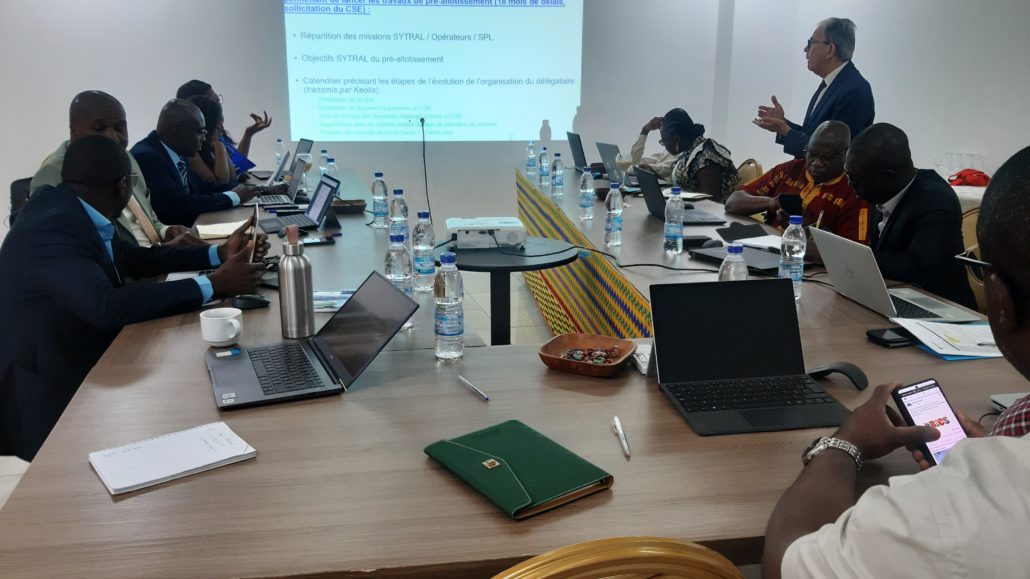
A second workshop on the challenges of contracting the operation of public transport services was held in Abidjan
Following on from a first Workshop on the challenges of contracting the operation of public urban transport services held in September 2022 in Abidjan, a second complementary Workshop was held from 4 to 6 April 2023 with teams from AMUGA and its Strategic Council, the Abidjan Urban Mobility Project (PMUA), the Sustainable Transport Project (PTD) and the General Directorate of Land Transport and Traffic (DG TTC) of the Ivorian Ministry of Transport.
Led by CODATU senior volunteer expert and former Sytral CEO, Raymond Deschamps, the three-day workshop was held in Grand Bassam with the aim of examining the main stages of negotiating Public Service Delegation Agreements (PSD), discussing the organisation chart of a functional AOM and the stages of its development with regard to the projects awaiting AMUGA and Greater Abidjan in terms of improving mobility and transport.

Working session with the AMUGA and the PMUA
Public service delegation in Abidjan
Raymond Deschamps’ speech coincided with the renegotiation schedule of the public service delegation agreement of the historical bus and boat operator SOTRA in Abidjan. Automatically renewed every fifteen years, the current agreement runs until 2028. While new modes of transport will be introduced in Abidjan (East-West BRT, Latrille BRT, light rail) and the Greater Abidjan transport network is being restructured, SOTRA’s operating and performance contract is set to change.
At the same time, the Abidjan Urban Mobility Project, the management unit of the East-West BRT project, is benefiting from a Transaction Board for the recruitment of the operator of the future East-West BRT line – Bingerville-Yopougon. In the perspective of a multi-operator network, the question arises for AMUGA of the management of an allotted transport network.
To illustrate this scenario, Raymond Deschamps used the example of the London network and the management method chosen for this network, which was allocated to a dozen operators.
Identifying the indicators for monitoring the operating contract
The indicators for monitoring a public transport network operating contract are defined by the Mobility Organising Authority in order to monitor the objectives of the contract with the network operator on criteria as varied as punctuality, maintenance, fleet management, vehicle cleanliness, safety, performance, etc.
In order to monitor a public service delegation contract, the AOM sets monitoring indicators for which it has the capacity to collect the appropriate and precise information. The AOM must also ensure that the operator is able to provide it with data that it cannot produce or control.
As AMUGA was created in 2019, this Authority wishes to draw up a realistic PSD contract according to the means at its disposal to monitor the contract and to collect the necessary data.
In this respect, the case study of the Lyon network’s PSD contract with Sytral provided feedback from an AOM in terms of negotiating with operators, seeing the gradual evolution of contracts, and identifying the types of possible indicators. The issue of structuring the AOM team and the evolution of its human resources needs was also addressed.
At the end of the workshop, it was possible to identify the next priorities of AMUGA in the framework of its negotiations with land and lagoon transport operators, including the definition of monitoring indicators for the Public Service Delegation Agreement with SOTRA, the measurement of quality of service (which will depend on AMUGA’s capacity to implement data collection on supply and demand), and lastly, the need for human resources reinforcement within AMUGA, in particular its legal department.
